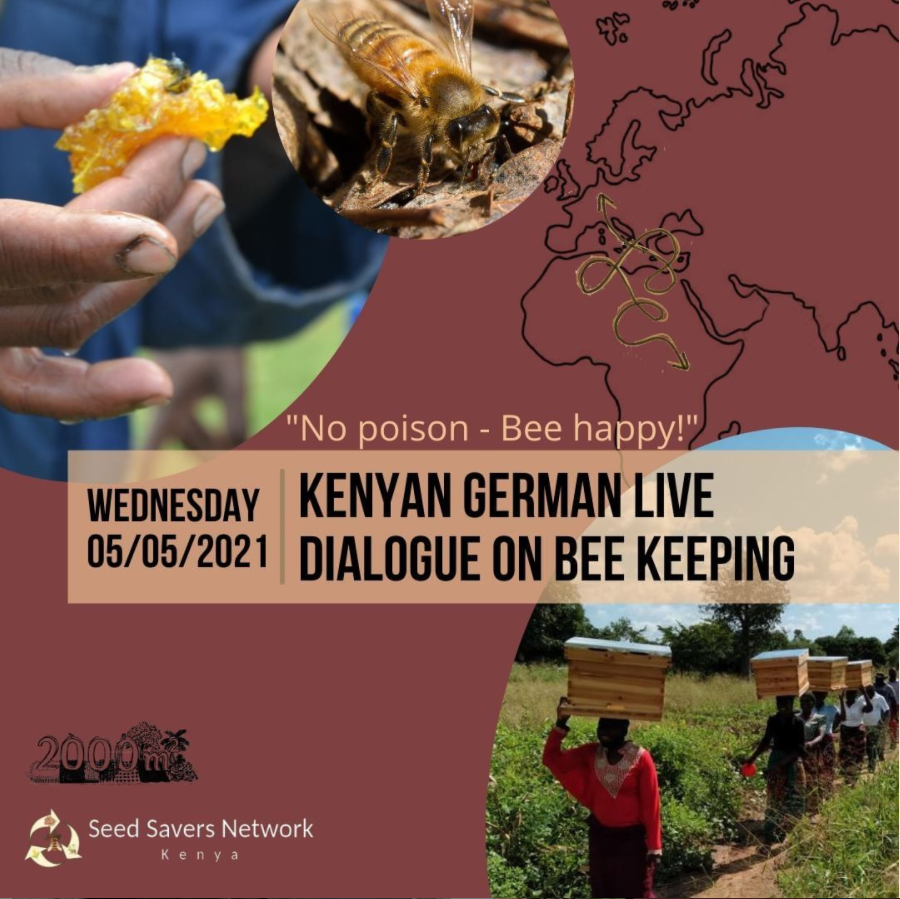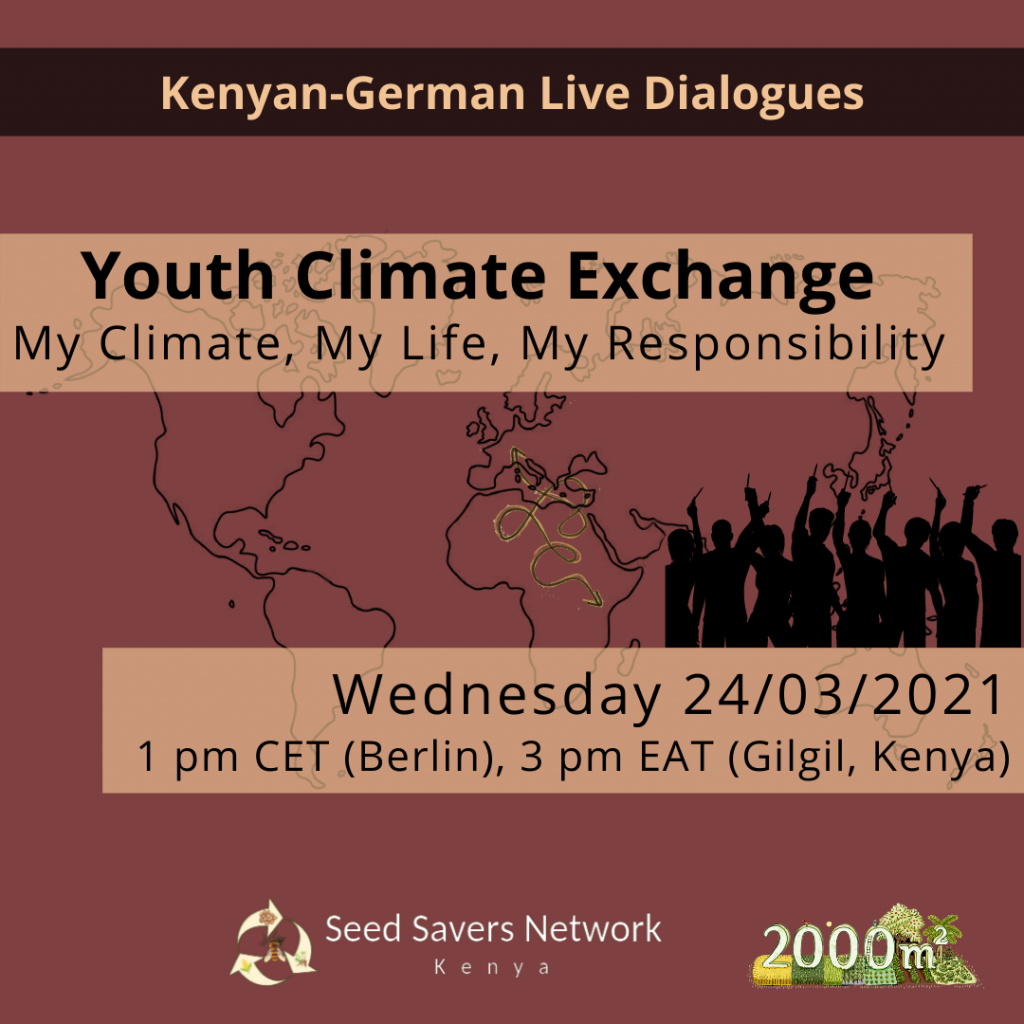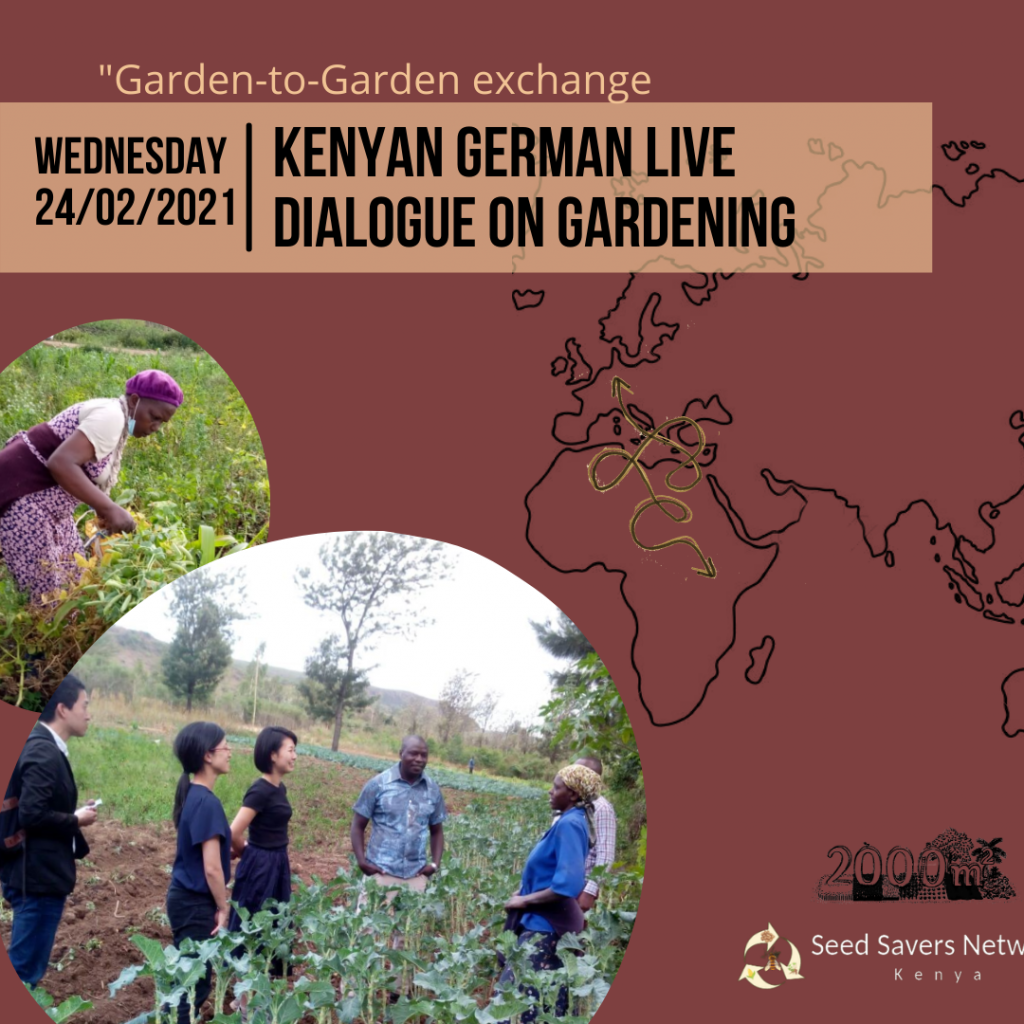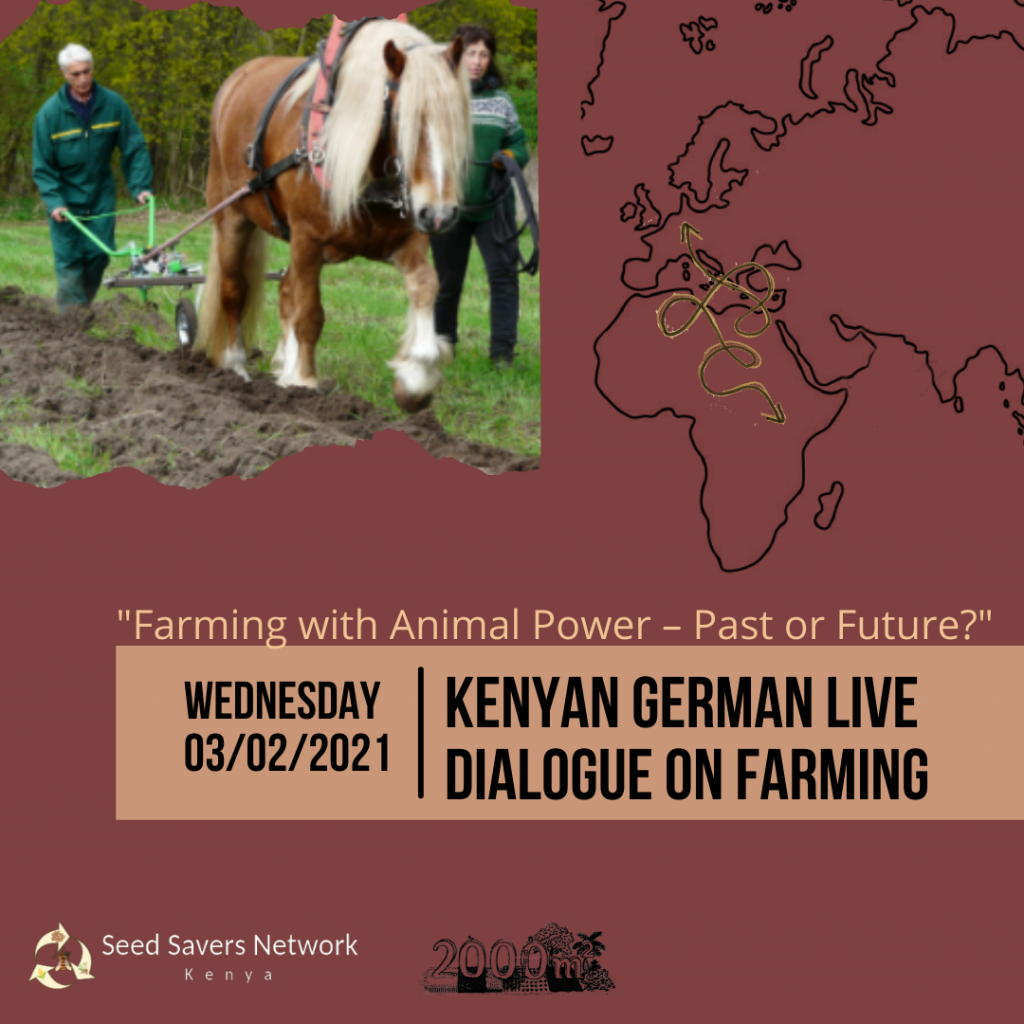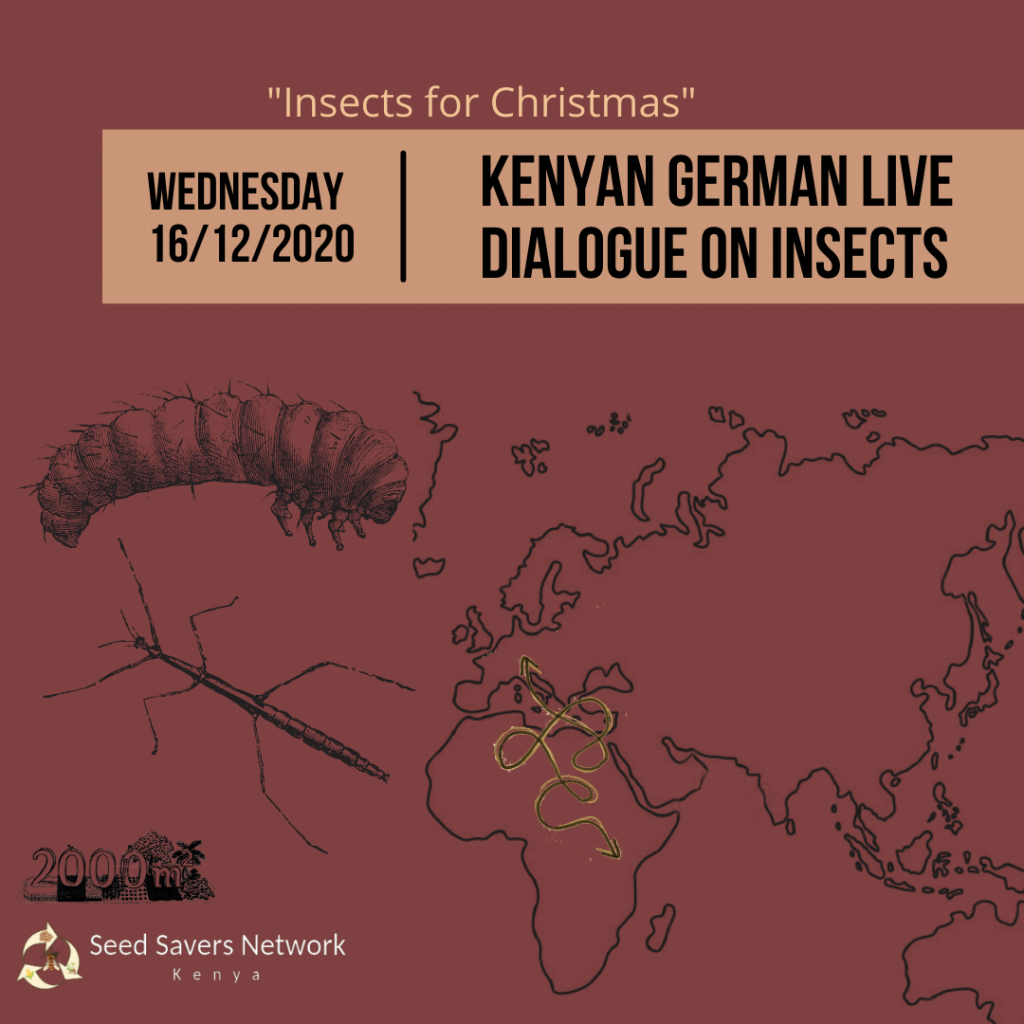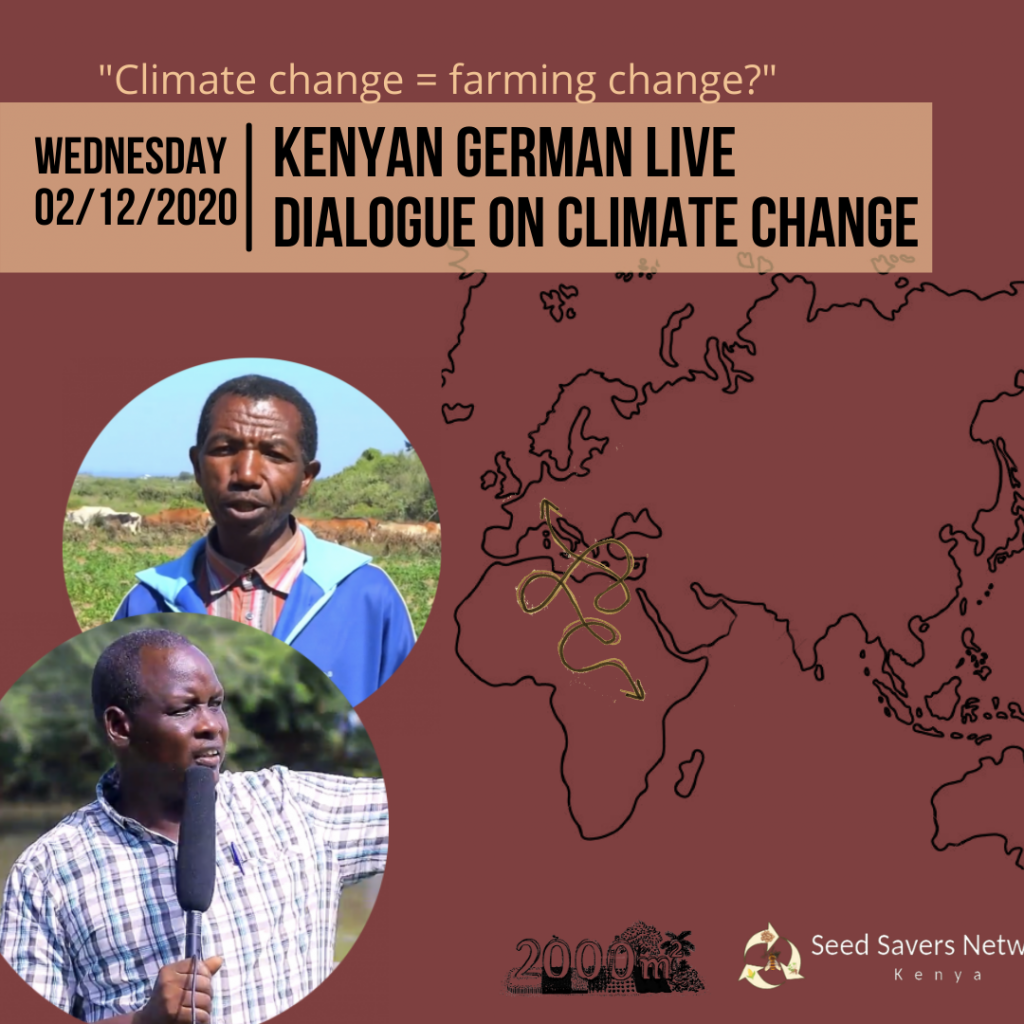An Online-Workshop series on farm, food and climate
Challenges of our time are globally interconnected – so are the solutions. Let us start on the grassroot level by having a Kenyan-German dialogue on farming, food and the climate. Our Online-Workshops unite East-African small-scale farmers with German consumers, Gilgil Seed Savers with Berlin environmental activists. Join us for the next sessions!
Also, check out our “One Health One Planet” project, where you can see exciting diary posts and our live recording of the final event.
Previous Events
Drought in Kenya – Food Scarcity
Find the whole conversation here
Wednesday 8th of June 2pm – 4pm (CET/Berlin) / 3pm – 5pm (EAT/Gilgil).
Our Live-Exchange between Kenya and Germany.
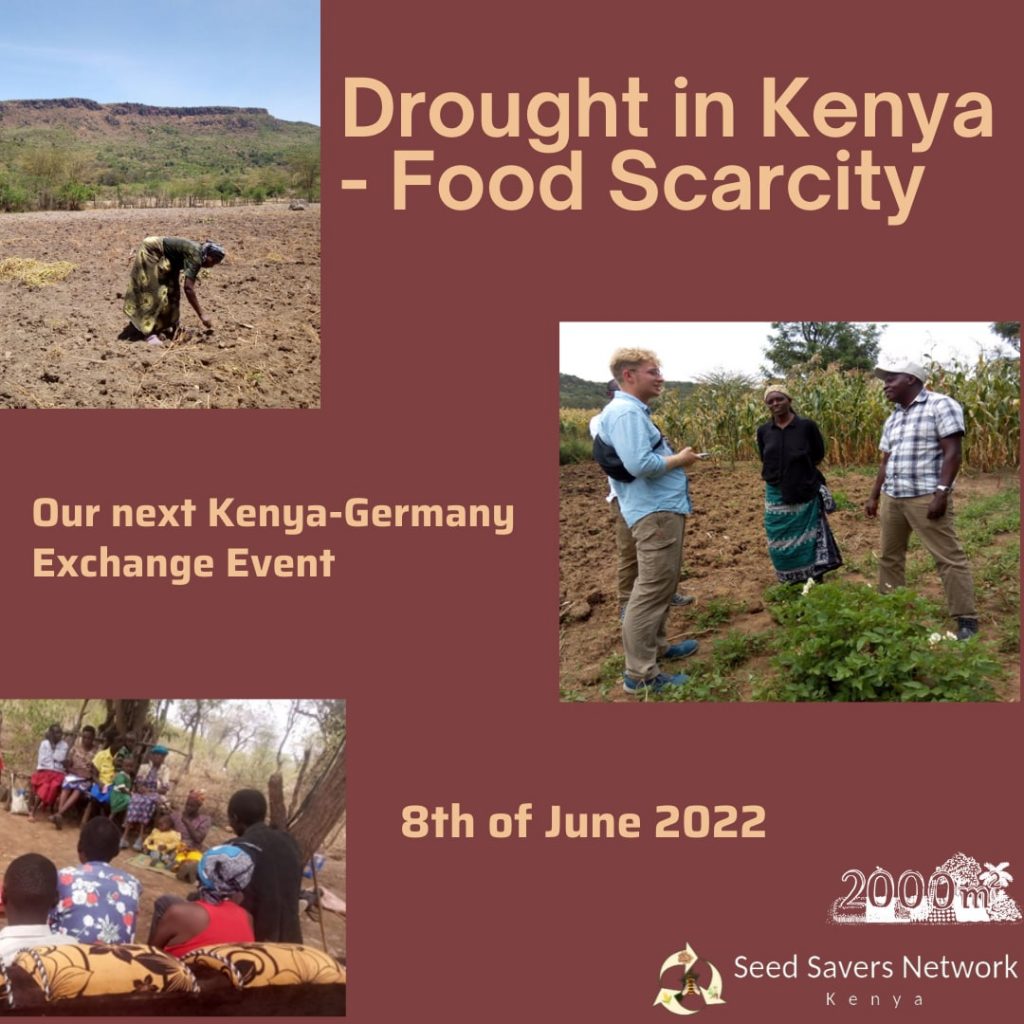
Lydiah Nyambura a citizen of Baringo, an arid county in North and part of „Seed Savers Network Kenya“ says: „Farmers and Baringo population are experiencing hunger as they depend on rainfall. Animals are dying and people are depending on relief food. If the situation won’t change more action on food provisions needs to be taken“
The current situation in Kenya, April 2022 – 3.1M people face starvation, 1.5M livestock have died and children in 8 counties are at risk of malnutrition.
Drought and other climatic extremes are major factors contributing to vulnerability to food insecurity. This threatens the lives and livelihood of all living things, especially in dry areas in the northern part of the country.
Our „Kenyan-German-Dialogue“ will discuss the current situation in a Live-Call on Wednesday the 8th of June 2pm – 4pm (CET) 3pm – 5pm (EAT) . „Seed Savers Network Kenya“ and „The Global Field“ from Berlin will facilitate a dialogue between Kenyan and German stakeholders. We aim to bring people together who can interface the topics of drought and food insecurity from a personal or professional perspective with a prospects on finding common solutions.
Community Supported Agriculture
Can Community Supported Agriculture be part of a solution for German and Kenyan small-scale farmers?
Wednesday 09. March 2022 1-3 pm (Berlin/CET) / 3-5 pm (GilGil/EAT)
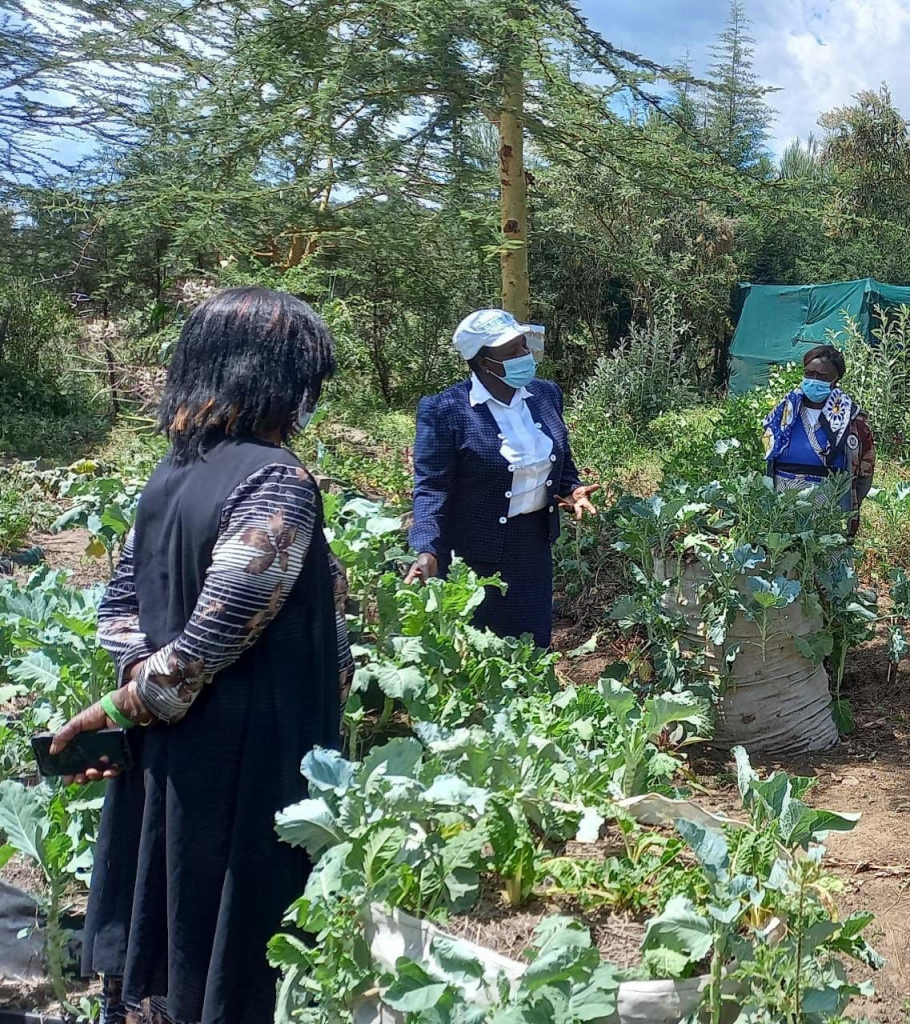
Beatrice is a small scale organic vegetable farmer in Gilgil, Kenya, growing kales, swiss chard, spinach, tomatoes among other vegetables for the market. She has brokers (middlemen) who come to her farm to purchase the vegetables well below market prices. Beatrice would love to be a constant supplier of clean food directly to the market. Community Supported Agriculture could help a great deal to improve her economic situation. The produce is there but the market is unreliable. On the other hand, finding safe food is quite a challenge for many consumers in Kenya.
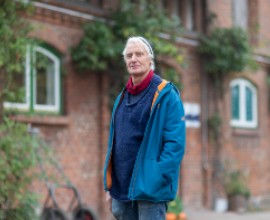
Mathias works and lives in Kattendorf, near Hamburg, Germany. Almost thirty years ago he founded the farm „Kattendorfer Hof“, Germany’s first Community supported agriculture. The members pay in advance a fair and jointly fixed price per yield share. Every week, their food-coops are then served with seasonal food directly from the farm: vegetables, meat, milk and cheese and grain, which can be complemented by partnering organic farms. No supermarkets needed in this food-chain. Mathias will be happy to share his knowledge and experience with us.
The partnership between the Seed Savers Network Kenya and Weltacker (global plot) Berlin is flourishing since some years now. We discuss issues of food sovereignty, agroecology, small-scale farming and gardening and also maintain an exchange between 6 schools in Berlin and Kenya. At our last online exchange, Kenyan farmers asked about the concept of Community Supported Agriculture. Is it a way to equitable pay and access to supportive, local markets? Could such a trust-based direct relationship provide consumers with secure and non-contaminated fruits and vegetables?
This direct online-exchange between Kenyan small-scale farmers and CSA-practitioners and supporters from Germany and other countries will address common challenges and allow to share experiences. We invite farmers and consumers already involved and practically interested in CSA and hope to kick off longer term partnerships.
Click here, to rewatch the Live Dialogue on Youtube:
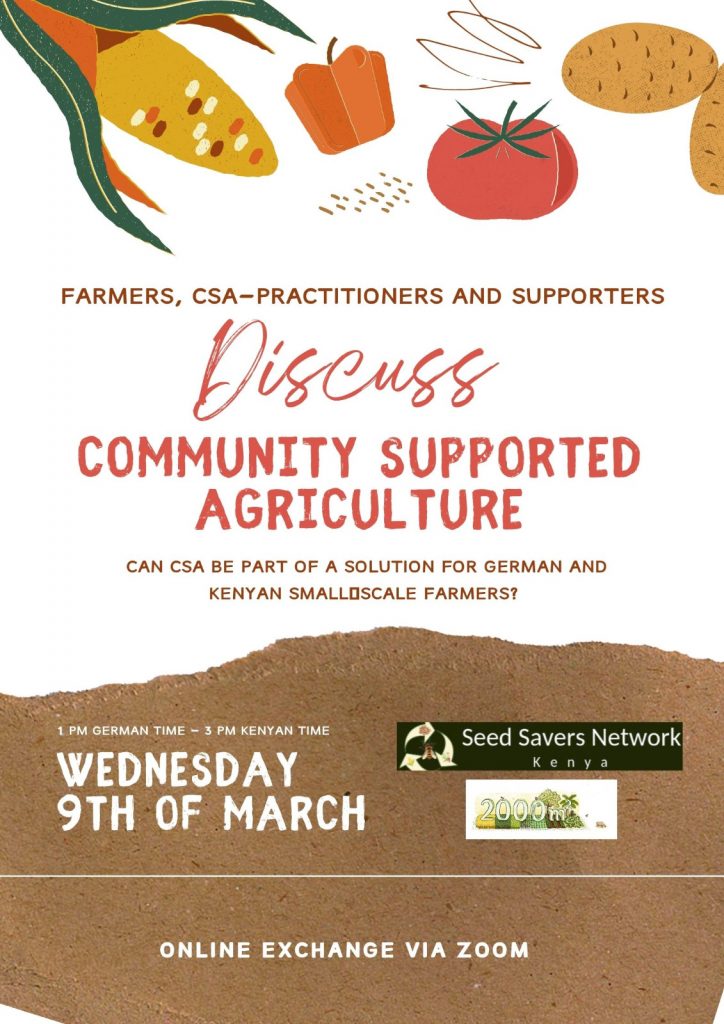
Organic Pest Management
Wednesday 25. August 1-2.30 pm (CET) / 2-3.30 pm (EAT)
Weeds and non-beneficial insects are an issue wherever farmers and gardeners are at work – be it Kenyan corn fields or German Schrebergarden allotments. Organic farmers employ alternative strategies to reduce, control and prevent pests without the use of synthetic inputs. Our exchange is a combination of theory and hands-on experience. We will ask German and Kenyan farmers and gardeners how they organically manage pests in their gardens. You are welcome to contribute! And there is more: German pesticides from global corporations like BAYER and BASF can be found in Kenyan shops as well – not all of them are still legal in the European Union. There is global protest against poisoning bees, farmers, consumers and the environment. Lets talk about it at our next online exchange!

Addendum to our last live dialogue: We would like to thank everyone who participated in our dialogue. It was a very interesting and insightful conversation for everyone. If you are interested in more information about our speakers, you can find it here:
- Silke Bollmohr: http://www.eco-trac.de/about.html
- Urs Mauk: https://relavisio.de/
- Anne Maina: https://panorama.solutions/en/user/anne-maina
- Gerd Carlsson: https://www.gerdcarlsson.de/
The live recording on Facebook can be seen here:
Previous Events
From Harvest to Home
Wednesday 23. June 1-2.30 pm (CET) / 2-3.30 pm (EAT)
In industrialized urban food systems many times consumers do not know where, by whom and under which conditions food was grown. Small-scale farmers in Gilgil/Kenya sell their surplus locally, but have to deal with brokers paying disproportionately little. Due to manipulative marketing of pesticide-companies and lax laws, even organic quality is not ensured.
In our past exchange we searched for ways to re-connect producers and consumers within the food system: From Community-supported agriculture in Brandenburg to Kenyan Apps for farmers. Together we visited cropsharing projects, organic markets and learned about direct distribution models.
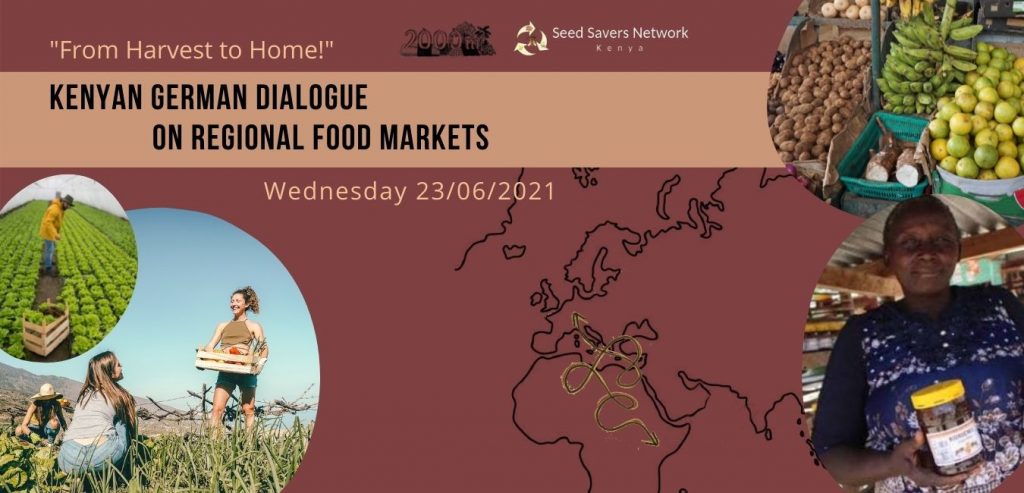
Click on the picture to find out more!
Have a look at the locations:
Further dates will be announced here!

